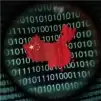All about privacy and anonymity.
26-01-2023, 14:40
Is anonymity possible on the Internet?
We understand who needs anonymity on the Internet and whether it is easy to achieve it
Anonymity on the Internet does not interest only those who do not use it. I'm still paranoid myself — I don't want anyone to read my correspondence about cats. I also taped the webcam, just in case. I decided to figure out how justified this is.
Why is it difficult to be anonymous on the Internet
Absolute anonymity is almost impossible to achieve. Andrey Zaikin, Head of Information Security at CROC explains: "There are tools that provide masking of real IP addresses, their substitution, traffic encryption and others. However, it should be understood that, firstly, these funds seriously reduce the usability of Internet services, and secondly, the level of anonymity is also determined by the resources and qualifications of specialists “at the other end of the wire". Therefore, the task of ensuring anonymity is probabilistic in nature."
Vadim Chakryan, an information security engineer at DataArt, believes that anonymity on the Internet is more like an illusion. Social networks, search engines, trading platforms, commercial and non-commercial web services and browsers collect information about users.
"We are assured that the data that is collected is anonymized, in many cases it is. But can we be sure that the software used does not collect “a little more"? A vivid example of privacy and privacy violations is the story with Facebook and Cambridge Analytica. The data is processed by machine learning algorithms that can know a lot more about you than you do," the expert says.
Many actions aimed at maintaining anonymity are useless — they calm only psychologically.
Taped a webcam, but left the microphone on, for example, to use a voice assistant? At least artificial intelligence can listen to you. Do you use a Tor browser and VPN services, but visit sites that you used without them, or brag about a brand new tattoo? You are not anonymous. You can accidentally reveal your identity even by discussing the weather.
The longer you are under the same pseudonym, the higher the probability of making a stupid mistake by which you can be calculated. We are people, no one is immune from this. Therefore, you need to constantly change your "digital identity".
There are many banal ways to "get burned".
Remember that your device leaves a unique fingerprint. You can be calculated by the course of the clock, the list of fonts and plugins, information about installed extensions, screen size and other parameters. It's like a fingerprint, but online. This unique combination of data can be used to identify a specific user. Even Tor is not as secure as it seems. Vadim Chakryan notices: "Do not forget about indirect methods of identifying the device through the analysis of its unique information, even if you access the Internet through the private browser mode and clear cookies or use Tor/I2P."
In general, everything is complicated, and it's hardly worth really bothering if you're not doing anything unworthy.
How to become "a little anonymous"
Achieving a basic level of anonymity when most people don't know who you are is a simple task even for a "teapot". "All you need is a VPN, an ad blocker and a privacy tool (privacy tool), for example, Privacy Badger. This level of control will help confuse your footprints on the Internet and confuse those who try to collect personal data," explains Ben Williams, chief operating officer of the ad blocker Adblock Plus.
The next level is to achieve anonymity from the state. "The state can force tech companies to hand over information that is locked in your phone - information that even the companies themselves do not know (for example, as in the situation with Apple in the case of the mass shooting in San Bernardino). Using special browsers, abandoning smartphones and taking many other steps that I haven't even considered, you can win back privacy on the Internet. However, while remaining an active user of gadgets, in order to achieve real online anonymity, you need to be a software scientist," Ben Williams continues.
Radical transparency as an alternative to cipherpunk
Many experts predict a radically transparent future. Daniel Larimer, developer, co-founder of BitShares and Steemit, believes that the best way to achieve freedom on the Internet is to use the Aikido method. This means not to take a blow, but to pull the opponent behind him, throwing him off balance. That is, not to resist with the help of all kinds of encryption, but to demand from everyone (including the government) maximum openness.
"When it comes to privacy, it turns out that we, as a society, live by double standards. We want to know everything about everyone and at the same time make sure that no one knows anything superfluous about us. Asking others not to voluntarily spy on us means asking them to act contrary to their own interests," Daniel believes.
Vyacheslav Zolotukhin, the ideologist and founder of the smart task management system EvoDesk, agrees with this logic: "I am sure that the trend for the near future is not only maximum openness, but also the so-called "confirmed openness". That is, there is less unsubstantiated information, and more and more information that can really be trusted. If you are hiring an employee, you want to know as much information about him before he takes office. If you are trying to get a job, you would like to know in advance what kind of bosses and colleagues you will be surrounded by. If you are going to make a purchase, then you collect reviews and comments about the product and the seller." The expert believes that the information vacuum cannot be one-sided: if we want to know everything about everyone, then we will have to tell everything about ourselves.
"Anonymity is greatly overrated. It's like in the joke about the Elusive Joe, who is elusive only because no one needs him. People try to be as secretive as possible, while not understanding what benefits openness gives them. For example, knowing what queries you make in search engines allows contextual advertising systems to give you the most targeted ads instead of showing everything in a row, increasing the information noise around you," Vyacheslav continues.
26-01-2023, 14:40
16-02-2024, 08:13
13-02-2024, 09:23




1 comments
Information
Users of Visitor are not allowed to comment this publication.